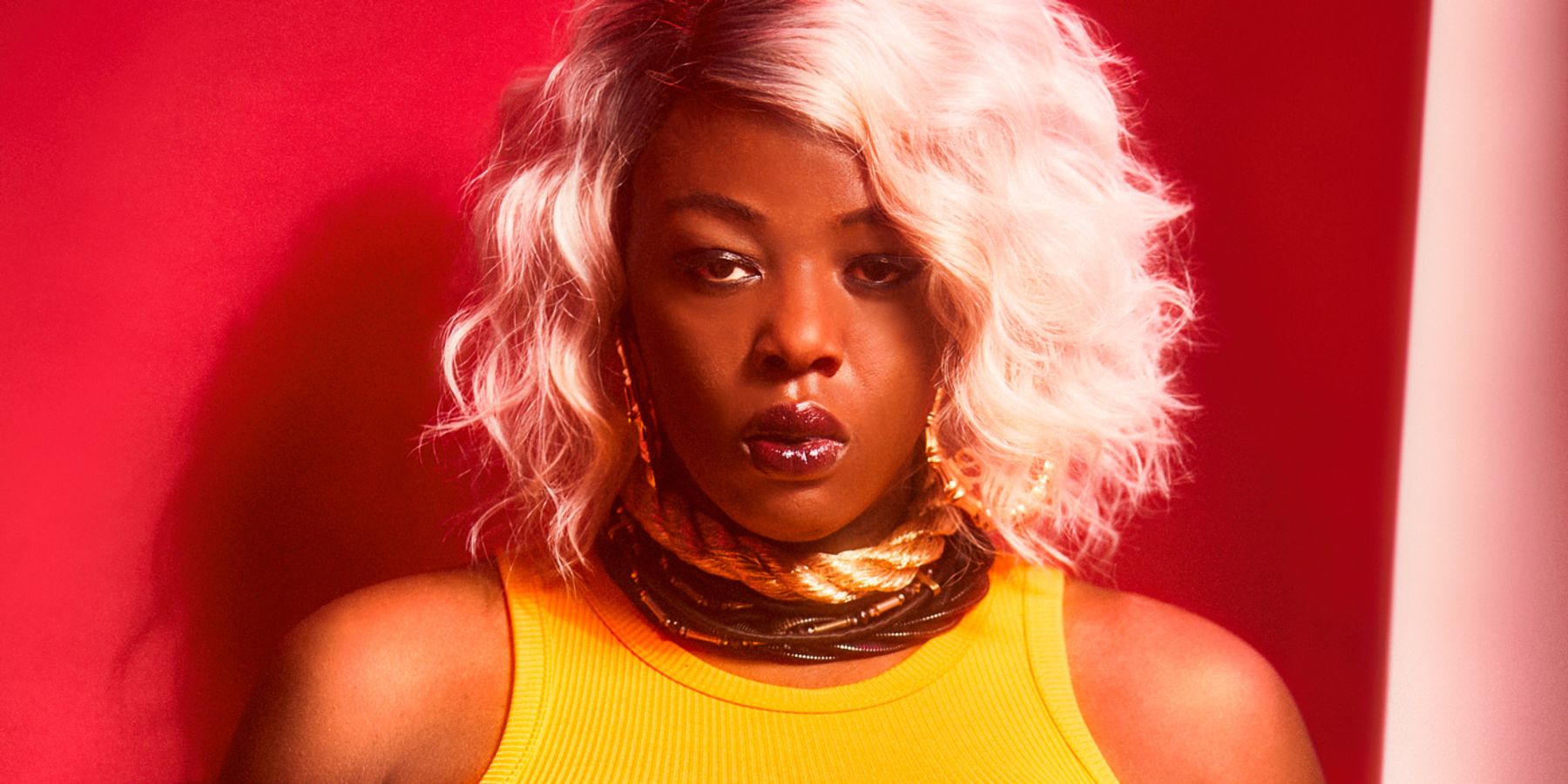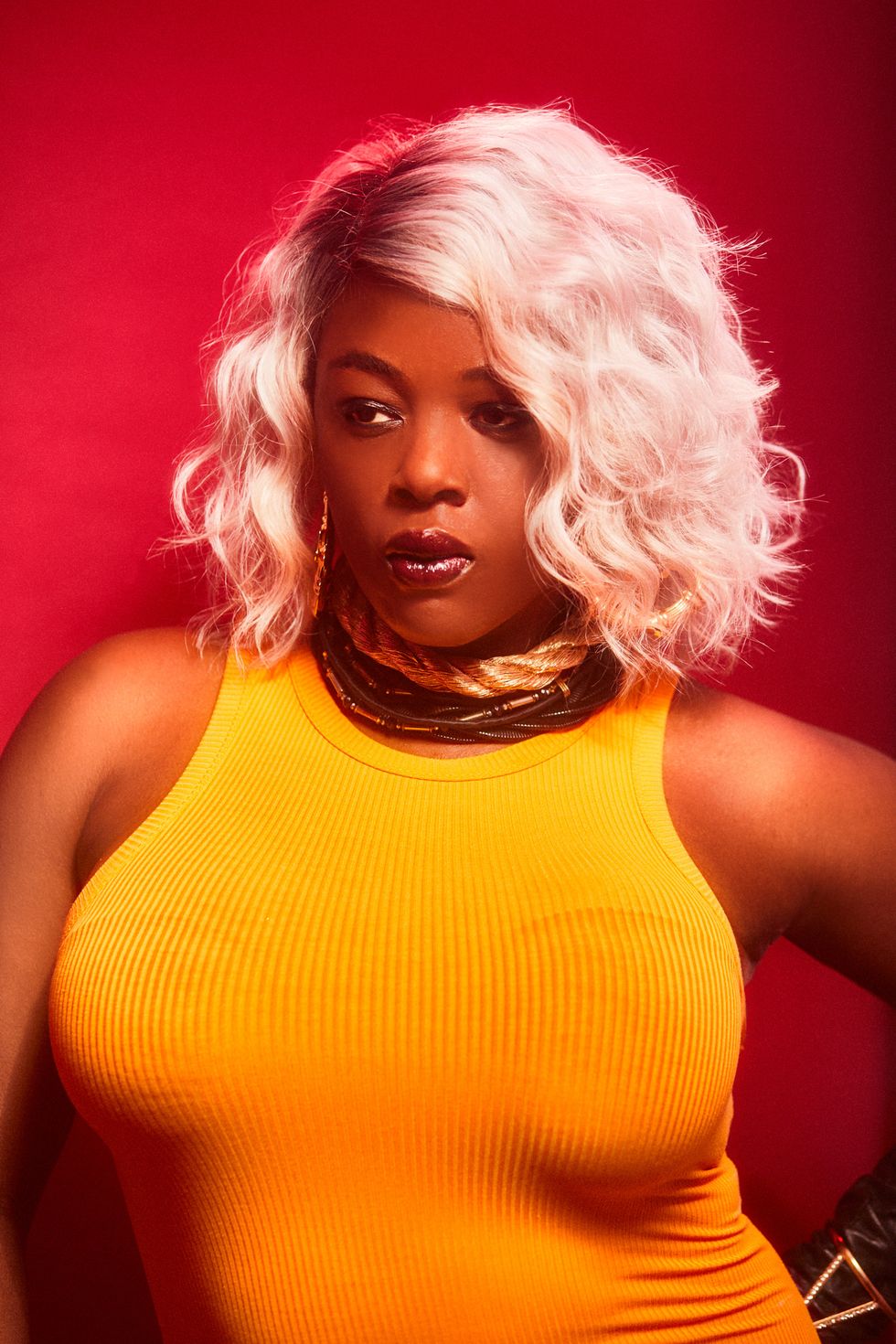
KC Ortiz's new EP unfolds like a series of daily affirmations, aimed at both her own personal empowerment and her community's.
Having grown up singing at church in Alabama, the now Chicago-based rapper's religious undertones come naturally — only this year, Ortiz found herself listening to audiobooks that seeped into the songwriting for The Campground, out today. "I've always felt close to God, but I never really studied before, the Bible that is," she says, explaining that she wants to "create power" through her latest music.
The EP title sees Ortiz looking back on her childhood, channeling the same enthusiasm she had as a kid and honoring the location of her mother's home. "When I was a kid, I just sang about what made me happy and I'm trying to bring that back into my art," she says, having used the time writing this EP to let her guard down and learn "to embrace those imperfections."
The Campground then feels like a perfect evolution from 2017's Church Tapes (See: "Shut Up"), when Ortiz paid tribute to her grandma and pulled inspiration from the cassette tapes her church sold for only a few dollars.
"If it's on my mind, bitch/ Let me get my pen out," Ortiz raps on The Campground opener, "Skinhouse," queueing up an eight-track effort that lets her mind run free amidst references to biblical figures like Moses and Jesus. On "Runnin'," the rapper reflects on a life of constantly pushing forward: "Bitch I'm tired/ From runnin', runnin', runnin'," she declares, while ultimately celebrating that she's alive. "Spencer," which samples David Bowie's "Let's Dance," doubles down on her positive outlook ("Believe I'm gon' slay"), while "Sparrows" is a hilarious take down of all the birds in Ortiz's life.
On "Point Em Out," Ortiz then distills all these complex thoughts into one simple, effective demand: "Where them haters at/ Point em out, point em out," she raps. "Probably right beside you/ And they plottin' on the spot."
Below, KC Ortiz talks to PAPER about The Campground EP and what she views is the role of an artist in 2020, as a Black transgender woman.
How do you think this EP is a reflection of where you are, right now, as an artist?
I think it shows me letting my guard down just a little. I overthink and overanalyze everything. Even after I finished this EP, I debated recording more tracks, removing tracks, changing the order, the name, the artwork. When I listened to songs on this project as well as previous ones I've done, I'm like, "Ugh, I wish I said that part differently." I really pick my work apart because I always want everything to be so perfect. Still, for me, this project is about learning to embrace those imperfections.
Do you see this project as a development of your previous work?
As an artist, I always want to experience growth. One of my biggest fears is to get stuck. I always try to come from a different and new point of view to create something that I haven't created before. I've been trying to be more authentic and more vulnerable — to not follow the waves, but make my own. I've always had people in my ear trying to influence me, telling me who I should sound like or what's working for other rappers. This time around, I'm learning to trust my own gut.
"I've been trying to be more authentic and more vulnerable — to not follow the waves, but make my own."
What's the story behind your EP title, The Campground?
The Campground is an area I grew up in. It was my mom's house, close to my grandma's house. Growing up, I always heard people talk about the area, "The Campground," and as a kid, I thought it was all tents or something, so when we moved there, I pretty much figured out it was just a nickname. I've been trying to take the stress out of my music by trying to write from that excitement I had as a kid, making up songs about everything. Sometimes I get so in my head about what the audience will like. When I was a kid, I just sang about what made me happy and I'm trying to bring that back into my art.

When did you create this project and how did that time period impact the music?
This project is a collection of my work from over the past year. I've always felt close to God, but I never really studied before, the Bible that is. I've been listening to audiobooks to learn more and I can see it coming through in my music. A lot of times I am writing stuff that I've read and not even realizing it. I want to get people out of their feelings and into their power. I feel that music is the beat we the people march to. Music is so powerful and I want to create power.
What do you think is the role of an artist in 2020?
I feel an artist is the voice of the unheard. It's crazy to think with all that's going on in the world, everyone's still rapping about how much jewelry they have. True art stands the test of time. I listen to James Brown, Selena, The Doors, Queen, Biggie — artists who are long gone, but their art carries on through the times. These songs on the charts may bop now, but I want to create art with longevity that will live on ages after I am gone.
"I want to get people out of their feelings and into their power."
What is it like being Chicago-based and how have local events impacted the way you approach music-making?
It has made me more aware. I can't just talk reckless saying any ole thing. I've said a lot of stuff in my music before that I don't honestly believe, but it sounded hot. I cannot allow myself to do that anymore. That's also in real life. This isolation has really been a time for serious reflecting. I've had to check a lot of my toxic traits and look in the mirror. I don't want to take an old attitude into a new level. We must come out of this tragic moment armed with everything it has taught us. Pain teaches us and if you don't learn from it, you went though it for nothing.
Photos courtesy of Jon Wes
From Your Site Articles
- Futurehood & Friends Showcased the Best of Underground Chicago ... ›
- Chicago Rapper Mister Wallace Talks New Album "Cool Mom ... ›
- Chicago Rapper KC Ortiz Silences Negativity in 'Shut Up' Video ... ›
Related Articles Around the Web